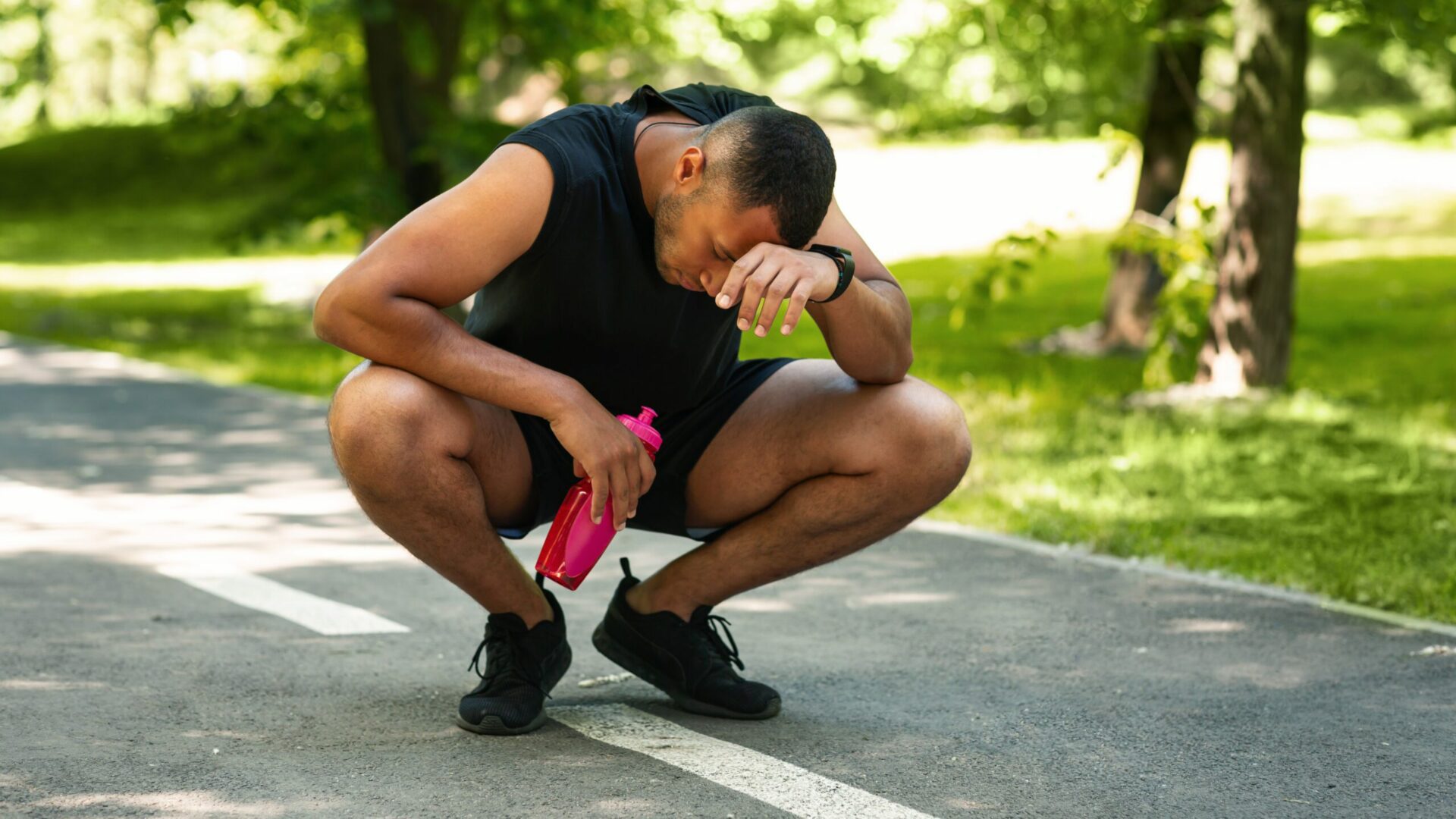1. Poor Nutrition
Cutting calories is common amongst people who exercise in order reach a particular goal. Doing so for extended periods of time can have a negative affect health and performance. Instances can arise where your body consistently draws on its energy reserves (body fat, and glycogen levels), which can result in nutritional deficiencies such as anaemia (low iron). In this example people may experience fatigue, dizziness, breathlessness, heart arrhythmia and blurred vision.
More serious conditions can arise that affect your gastrointestinal, endocrine and cardiovascular systems . Your reproductive and nervous system can also be affected in wigs you may experience complications such as irregular period cycles or loss of period completely. From a mental health perspective your risk of developing eating disorders is significantly increased also. Also increasing the chances you may develop depression, anxiety and mood swings.
2. Injuries
Exercising to your limits can be beneficial but you walk a fine line where too hard for too long can incur injury. Typically associated injuries from training too hard include: muscle tears, ligament and tendon damage, micro fractures (in bones), micro tears (in muscles), aches and pains.
3. Repetitive Use Injuries
Exercise and sports that are high impact and / or longer in duration like running, rugby, football, netball etc can result in injuries such as muscle tears, fractures, ligament damage, shin splints, stress fractures and plantar fasciitis. Aches pains and general “niggles” are common if you’re active to prevent serious injury, take a break from all types of exercise to allow your body to repair and heal. Or at a minimum work with a fitness coach who may be able to adapt your training accordingly.
4. Lethargy
Feeling tired and being fatigued are two different states. Feeling tired can result from a tough workout, lack of sleep, busy day or low on fuel. You can usually recover from feeling tired by taking a nap, eating some food, drinking water or having a few hours rest. Being fatigued is more intense and lasts longer. Often you feel languid, lethargic and weak. Fatigue can result following one of, or a combination of the following poor nutrition, inadequate hydration, high intensity exercise, prolonged steady exercise and exercising everyday.
5. Lower Appetite & Weight Loss
Often exercise increase appetite in the hours / days after. This is healthy and with adequate and suitable nutrition hunger levels should reduce. Exercising too often can cause hormonal imbalances that can impact how hungry or full you feel. Ghrelin and leptin levels particularly can be affected, that may leave you feeling less hungry than your body requires. OTS has an adverse effect on you appetite leaving you feel like you can’t be bothered to eat. Overtime this may result in unplanned weight loss.
6. Moodiness
Exercising too much may affect stress hormone levels such as an increase in cortisol, which can result in depression, confusion, and mood changes. You may also experience restlessness, poor concentration and sleeping difficulties.













